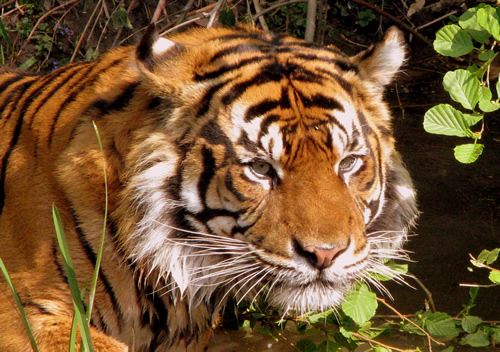
The rise of China as an economic superpower has impacted the entire world — including wildlife.
Although economists and investors have been studying — and profiting from — China’s powerful trend, Barron‘s stated in its July 2 cover story (“Falling Star“) that the Chinese economy is slowing and hard times are ahead.
Many investors have recently questioned China’s continued growth. The most famous, of course, is Jim Chanos.
Chanos’ track record speaks for itself: He was perhaps the first to see Enron’s demise, and profited significantly from the subprime crisis. Chanos has targeted China’s real estate market for years — and his thesis is gaining more supporters.
Chanos contends that China is headed for a hard landing of epic proportions because of its shaky financial system and an imminent collapse in its property market which undergirds the entire economy.
What may be surprising is that the Barron‘s article inferred that one of the most famous China economic bulls, William Overholt, could be souring on China’s future growth.
China faces the prospect of long-term stagnation — a prospect far worse than that of Japan some 20 years ago.
While economists do agree that China’s economic growth is slowing down, camps are divided about the impact of the slowdown.
How will China’s slowing economy impact our planet’s endangered wildlife? That is a good question.
Many conservationists and wildlife trade experts state that plummeting wildlife populations have mirrored the rise of China and its increasing upper and middle classes. Indeed, there has been a dramatic increase in China’s disposable income; items such as ivory and tiger bone wine are status symbols.
Economic slowdowns reduce disposable and discretionary income. On the surface, this might lead to lower demand for high ticket items whose purchasing decision can be postponed or substituted. Granted, the highest end luxury items may not falter, as the wealthiest consumers will continue to afford even the most expensive items.
However, the larger, growing numbers of the middle class will be forced to cut back their spending.
Perhaps this is an opportunity to provide a population under economic stress with lower cost, medically proven treatments for common ailments, such as using aspirin — not rhino horn or tiger bone — as a pain reliever.
Development of such a change would take time, but it would also create industry and domestic consumer demand. And China’s export-driven growth engine needs to create consumer demand on its own soil.
Here lies the problem: China’s government has been subsidizing the traditional Chinese medicine industry. Endangered species such as rhinos, tigers, and bears are believed to contain “key ingredients” for traditional Chinese medicine — an ancient practice based more on myth than medical fact.
In the early 1990s, tiger farms were created to harvest tiger parts, such as bones, for health tonics and tiger bone wine. Bear farms were created to extract bile. Bears with little hope for survival are kept in cages without room to turn around, while they await the insertion of dirty catheters into their gallbladders with no anesthesia.
And in the late 2000s, a formal plan for the creation of farming rhinos for their horns was subsidized by the Chinese government.
As the Chinese economy continues to slow, the government will pump great amounts of stimulus into the faltering economy. And funds directed towards the traditional Chinese medicine industry may very well have a dire effect on imperiled wildlife.
While it is hard to tell if the slowing Chinese economy will have a positive or negative impact on our planet’s wildlife, of this we can be certain: Endangered species need help from the human race. We have the resources and technology to save them, and the decision is in our hands.
Sadly, the human race does not always favor wildlife conservation.
Image by Moni Sertel via Wikimedia Commons




